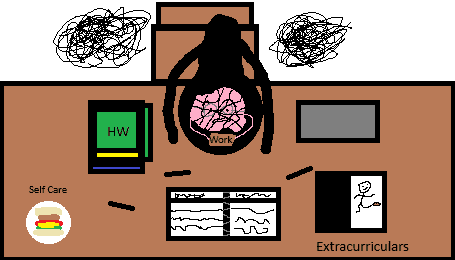Do you have a classmate that seems to always get more time on assignments than everyone else, or stays after class to finish a test that you had to finish by the time the bell rang? It may feel unfair to you, but in reality, these things are what makes school fair for your peers. These accommodations are provided to students with disabilities under plans that are created by the school. One example of this is something called a 504 plan.
A 504 plan is a set of accommodations protected by section 504 of the Rehabilitation Act of 1973. In the words of 504 coordinator Mrs. Beth Pantazi, a 504 plan helps to, “level the playing field” or in other words, allow students with disabilities to have the same academic opportunities as students without disabilities.
In the classroom the accommodations of a student’s 504 should be provided without the student having to ask. Some accommodations that a student on a 504 plan may include extended time on assignments and tests and preferred seating to minimize distraction, among other things. Not every student has the same set of accommodations, because not every student has the same needs. In fact, not every student with a disability needs accommodations at all. Many times teachers will forget about accommodations for individual students because they have so many students in one day, and this is why communication is very important for a 504 plan to function at its fullest capacity. If there is a misinterpretation of an accommodation listed in a 504 plan or one is forgotten about, a friendly reminder or a conversation about the misunderstanding can help to resolve the issue.
Having a 504 plan can make or break the academic experience of the students that need them. Many students with disabilities such as ADHD or autism think at an advanced academic level, but they need extended time to be able to handle the physical workload that comes with taking advanced level classes.
A 504 plan is not something to be ashamed of, the disabilities of students that possess 504’s are not in their control, no one chooses to have a disability and no one should be shamed for having one either. Although 504 plans may seem difficult to understand, at the end of the day education, communication, and cooperation are all that is needed to make 504 plans and other types of accommodations work practically.






























